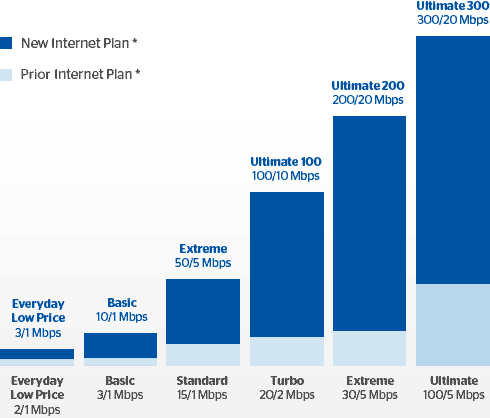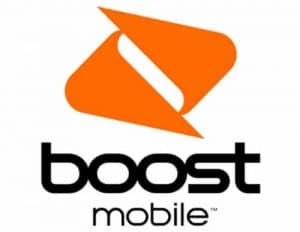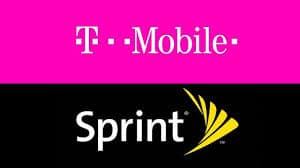 Charter Communications is not obligated to upgrade New York internet customers to a minimum internet speed of 300 Mbps, according to a letter of clarification directed to Stop the Cap! and received today from the New York State Department of Public Service.
Charter Communications is not obligated to upgrade New York internet customers to a minimum internet speed of 300 Mbps, according to a letter of clarification directed to Stop the Cap! and received today from the New York State Department of Public Service.
DPS:
In the Commission’s 2016 order, Charter was required to offer broadband internet service with speeds up to 100 Mbps to all customers served by its New York networks (including its Columbia County systems) by the end of 2018; and offer broadband internet service with speeds up to 300 Mbps to all customers served by its New York networks by the end of 2019. At the time of the Commission’s decision, although Time Warner operated some systems in New York that were already capable of offering customer speeds up to 300 Mbps, the majority of Time Warner customers in Upstate New York were limited to broadband speeds of 50 Mbps.
Charter was therefore required to upgrade its network to be able to offer broadband service at speeds up to 300 Mbps by the end of 2019 but was not required to increase its minimum service offering to 300 Mbps. Charter has reported that it has complied with this condition ahead of schedule and Department of Public Service Staff has begun the process of independently field-testing Charter’s network to verify compliance with the condition.
Stop the Cap! raised this issue with the Commission as part of the recent settlement agreement between New York State and Charter Communications, and sought an official clarification. Approximately 40% of Charter’s national footprint now receives 200 Mbps download speeds while most New Yorkers receive just 100 Mbps for the same price, putting the state at a disadvantage.

Dampier
“The Commission’s language in the original merger agreement was unclear, because Time Warner Cable had already embarked on a statewide upgrade to its so-called ‘Maxx’ service tiers, which included free speed increases, negating most of the benefits of the state’s condition requiring Charter to upgrade broadband speeds as part of its terms to approve the merger,” said Phillip Dampier, founder and president of Stop the Cap! “In fact, this merger made things worse for New Yorkers because customers would have been getting Time Warner Cable Maxx speeds as much as a year earlier than what Spectrum finally delivered across the state, and customers would have been offered a number of options for less costly internet service that Spectrum dropped.”
Shortly after the merger was approved, Charter placed a moratorium on Time Warner Cable Maxx upgrades and spent months attempting to knit Charter’s existing systems with the much larger Time Warner Cable.

Time Warner Cable Maxx speeds were well on the way throughout Upstate New York before Charter acquired the company and issued an upgrade moratorium.
“Consumers already know from their cable bills that this merger was just another bad deal for New York, and now nearly half of Spectrum’s national service area gets twice the speed Upstate New York gets for the same price, and there is no pressure on the company to deliver any additional upgrades,” Dampier added.
Stop the Cap! also urged the Commission to do all it could to make life easier for customers in the New York City area, where Charter has been trying to rid itself of union technicians that have been on strike for over two years.
“For all the talk by state officials, including the governor, it appears there is no end in sight for this strike and customers are caught in the middle,” Dampier said. “We hear frequently from New York City consumers about substandard repair work and unacceptable installations that suggest the company is not using the best available workforce to take care of customer needs. Charter is making loads of money in profits and can afford to offer a square deal to workers to end this strike and get these technicians back to work.”


 Subscribe
Subscribe NEW YORK (Reuters) – Charter Communications submitted a proposal to the Justice Department to buy telecom assets being sold under the T-Mobile US and Sprint Corp combination, but never heard back from the agency, three sources familiar with the matter said.
NEW YORK (Reuters) – Charter Communications submitted a proposal to the Justice Department to buy telecom assets being sold under the T-Mobile US and Sprint Corp combination, but never heard back from the agency, three sources familiar with the matter said. The Justice Department has helped engineer an approvable merger deal between T-Mobile and Sprint that will get antitrust regulators’ blessings as early as tomorrow, according to
The Justice Department has helped engineer an approvable merger deal between T-Mobile and Sprint that will get antitrust regulators’ blessings as early as tomorrow, according to  Regulators in the Trump Administration’s Justice Department claim shaving assets from a super-sized T-Mobile will preserve the competition that will be lost when Sprint becomes a part of T-Mobile. But Dish will emerge as a miniscule player with only a fraction of the 100+ million customers that AT&T and Verizon have, and at least 80 million customers signed with T-Mobile. One of the core arguments T-Mobile and Sprint made in favor of their merger was that each was too small to afford to deploy 5G service quickly and efficiently. Dish will have even less money to build out a basic 4G wireless network.
Regulators in the Trump Administration’s Justice Department claim shaving assets from a super-sized T-Mobile will preserve the competition that will be lost when Sprint becomes a part of T-Mobile. But Dish will emerge as a miniscule player with only a fraction of the 100+ million customers that AT&T and Verizon have, and at least 80 million customers signed with T-Mobile. One of the core arguments T-Mobile and Sprint made in favor of their merger was that each was too small to afford to deploy 5G service quickly and efficiently. Dish will have even less money to build out a basic 4G wireless network. WASHINGTON (Reuters) – The U.S. Justice Department would sue to block the merger of T-Mobile US Inc and Sprint Corp if the parties do not settle next week, CNBC reported on Thursday, citing sources.
WASHINGTON (Reuters) – The U.S. Justice Department would sue to block the merger of T-Mobile US Inc and Sprint Corp if the parties do not settle next week, CNBC reported on Thursday, citing sources.

